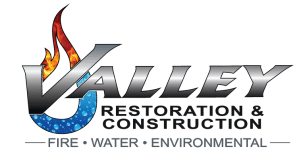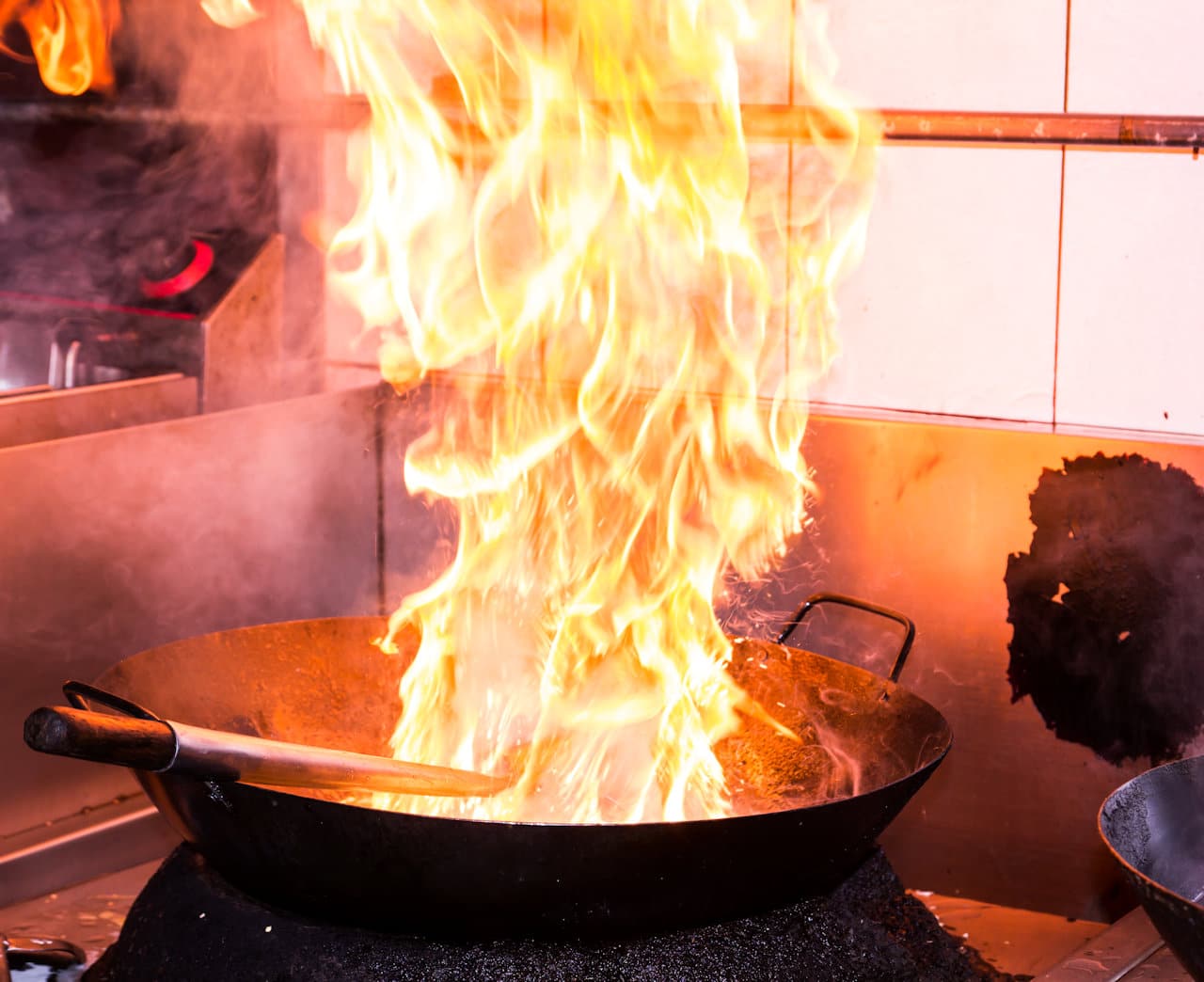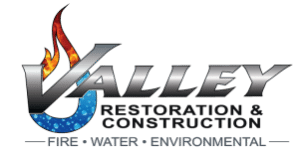More than 40% of house fires start in the kitchen. Ovens, stovetops, microwaves, and other electrical appliances are responsible for most kitchen-related fires.
The presence of hot oil and other oily substances make fires in the kitchen more hazardous and dangerous, especially since many don’t realize that the worst possible thing you can do is throw water onto a flaming pan.
As mitigation, restoration, and reconstruction specialists, we have witnessed numerous fires that started in the kitchen and spread into the rest of the house. We strongly advise homeowners to make sure their kitchens are safe and clean and to have fire extinguishers, fire blankets, and fire alarm systems installed to mitigate any fire that starts there.
Follow the tips below to ensure your home’s safety!
Small Steps to Ensure Your Kitchen Is Fire-Proof
Keep Your Kitchen Clean
A clean kitchen is a safe kitchen.
Grease and oily substances can be kindling for fire so keep your stovetop and oven clean. Food remnants in the oven can become hazardous with high temperatures. Greasy stains on your stovetop can heat up and cause a fire to spread quickly.
Keep Children Away from the Kitchen
No matter how much you want to introduce your 3-year-old to the wonders of cooking, you should be extra careful when having children in the kitchen. For maximum safety, install strap locks onto the oven door and stove knob stops to make sure that toddlers can’t fiddle with them.
Supervise Your Cooking
We all do it and it’s wrong: putting a pan or pot to boil, fry, or bake and then walking away for “just a second” to make a phone call, clean up, iron some clothes, watch some TV, or read a book.
Unfortunately, it is easy to lose track of time. You should constantly supervise your pots and pans, especially in the case of frying. Always be alert to the possibility that high temperatures and oil can easily lead to fire!
Don’t Use Your Oven for Storage
It’s the time of the year for the elf to get off the shelf and… find itself inside an oven. A quick Internet search will show you how easy it is for the poor elf to turn into a lump of coal. Even when it’s not the elf who’s on fire, it can be a pot or leftover food. When you lack storage space, it is tempting to put your pans, pots, or even food into the oven. However, while convenient, if you try to preheat your oven with these still inside, you risk a fire. Plastic from pot handles, for example, can melt and burn.
Don’t Leave an Empty Pan on a Hot Burner
After you’ve cooked and drained your pasta, don’t put the empty pot back on the hot burner. At best, you risk destroying your pot. At worst, the bottom of the pan can get so hot that it causes a fire.
Don’t Wear Loose Sleeves
It may come as a surprise how many people get their sleeves burnt while cooking. Don’t wear loose sleeves or any clothing that has tassels or other accessories hanging. These could easily catch fire from your stovetop as they slide over it.
Likewise, don’t leave kitchen tools, tea towels, and other flammable material near a hot stove: they could easily melt or catch fire.
What Should I Do If a Fire Starts in the Kitchen?
Don’t Immediately Pour Water
Our first instinct is to pour water on fire. Yet, in the kitchen, and depending on the fire cause, this may be the worst thing to do. When you pour water on burning oil and grease you are spreading the fire even further, causing more damage and perhaps even an explosion.
Instead, and if your fire is manageable—for instance, a pan or pot that’s caught fire—you should smother the fire to deprive it of oxygen. That could be something as simple as putting on a lid, a fire blanket, or baking soda.
If you can, turn off the oven or the stovetop. This will leave the fire without any further fuel, making it easier to put it out. If the fire started in the oven, keep the oven door closed to stop the fire from spreading.
Call the Fire Department
If the fire is too extensive, close your kitchen door and get out of the house. Remember to close all the doors from the kitchen onwards to stop or slow down the spread of fire throughout the house. Make sure all members of the households are accounted for and out of harm’s way. Call the fire department right away.
If You Smell Gas in Your Kitchen
Never turn on your stovetop or oven if you smell gas in your kitchen. Open the windows as wide as possible and call a professional to identify the problem. Avoid breathing in the gas, close the door, and stay out of the room. Turn off the main shutoff valve, which is usually located just before the gas meter.
Fire Equipment for Your Kitchen
To keep your house safe and make it as fireproof as possible, you should invest in fire equipment.
A well-maintained fire alarm system is the first step toward ensuring your kitchen is safe. Even if there are some false alarms, it’s better to be safe than sorry.
A fire blanket located close to the stovetop can quickly stop a small fire from spreading. A fire blanket is made of strong fireproof material. When you throw the blanket onto a fire, you deprive the flames of oxygen, letting you put out the fire with ease.
A fire extinguisher can also help you put out a fire and spare your home from further damage. However, remember that not all fire extinguishers are suitable for all kinds of fire. An ABC dry powder fire extinguisher can be used on most kinds of fires, including class A, B, C, and electrical fires:
- A class A fire will burn flammable solids as fuel, e.g. wood and paper.
- Class B fires burn flammable liquids, e.g. petrol and paint.
- Class C fires burn flammable gases, e.g. propane and butane.
- Electrical fires involve electrical equipment.
- Class F fires will burn cooking oils and fat, e.g. from a deep fat fryer like a chip pan. Because of the extremely high temperatures involved, class F fires require a wet chemical fire extinguisher.
Valley Restoration and Construction Is Available 24/7
If, despite all your best efforts your kitchen catches fire, Valley Restoration and Construction is available 24/7 at 970-964-4437 to mitigate any fire damage and restore your kitchen and home.
Call us now at 970-964-4437 or contact Valley Restoration and Construction. We are available 24/7 online and can take care of basic fire clean-up, soot removal, or total reconstruction and repair of a fire-damaged kitchen.


